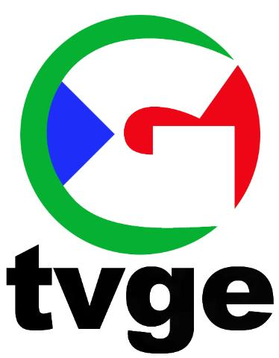
Equatorial Guinea, officially the Republic of Equatorial Guinea, is a country on the west coast of Central Africa, with an area of 28,000 square kilometres (11,000 sq mi). Formerly the colony of Spanish Guinea, its post-independence name refers to its location near both the Equator and in the African region of Guinea. As of 2024, the country had a population of 1,795,834, over 85% of whom are members of the Fang people, the country's dominant ethnic group. The Bubi people, indigenous to Bioko, are the second largest group at approximately 6.5% of the population.

Demographic features of the population of Equatorial Guinea include population density, ethnicity, education level, health of the populace, economic status, religious affiliations and other aspects of the population.

The government's official policy is one of nonalignment. In its search for assistance to meet the goal of national reconstruction, the government of Equatorial Guinea has established diplomatic relations with numerous European and Third World countries. Having achieved independence under UN sponsorship, Equatorial Guinea feels a special kinship with that organization. It became the 126th UN member on November 12, 1968. Equatorial Guinea served as a non-permanent member on the United Nations Security Council from 2017 to 2019.

Malabo is the capital of Equatorial Guinea and the province of Bioko Norte. It is located on the north coast of the island of Bioko. In 2018, the city had a population of approximately 297,000 inhabitants.

Francisco Macías Nguema, often referred to as Macías Nguema or simply Macías, was an Equatoguinean politician who served as the first president of Equatorial Guinea from the country's independence in 1968, until his overthrow in 1979. He is widely remembered as one of the most brutal dictators in history. As president, he exhibited bizarre and erratic behavior; many of his contemporaries believed he was insane.

Equatorial Guinea is divided into two regions and eight provinces. The newest province is Djibloho, created in 2017 with its headquarters at Ciudad de la Paz, the country's future capital.
The mass media in Equatorial Guinea is primarily run by the state. Radio and Television Asonga are not officially run by the state, but by people close to the administration.

The National University of Equatorial Guinea is a public institution of higher education, being one of the main universities of Equatorial Guinea in Central Africa.
According to Article 3 of the Constitution of Equatorial Guinea, the country is divided for administrative and economic purposes into regions, provinces, districts, and municipalities. In practice, the provinces serve as the first-level administrative divisions. Municipalities are subdivided into village councils and neighbourhood communities. Many of the sub-municipal entities are grouped into urban districts, which remain subordinate to municipalities and are distinct from districts proper.

Iván Salvador Edú, known in Spain as Iban Salvador and in Africa as Iban Edú, is a professional footballer who plays as a forward for Polish club Wisła Płock. Born in Spain, he plays for the Equatorial Guinea national team.
María Rosa Ondo Nsing, known as María Rosa, is an Equatorial Guinean football manager and former player who played as a goalkeeper. She has been a member of the Equatorial Guinea women's national team, first as a player and later as a coach. She currently chairs the Women's Football Association in her country.

Trinidad Morgades Besari was an Equatorial Guinean writer, academic and diplomat. She was the first Equatoguinean woman to receive a university education.
Salvador Elá Nseng Abegue was an Equatorial Guinean military leader, politician, and diplomat.
The Supreme Military Council — initially called the Military Revolutionary Council — was the ruling military junta and the de facto government of Equatorial Guinea between the 1979 coup d'état and the 1982 constitutional referendum.

Televisión de Guinea Ecuatorial is an Equatorial Guinean state television channel, which is part of the public media system called Radio Televisión de Guinea Ecuatorial (RTVGE).

Equatorial Guinea–Venezuela relations refers to international relations between Equatorial Guinea and Venezuela. In both countries the official language is Spanish and they have an important economic activity based on oil extraction.

General elections were held in Equatorial Guinea on 20 November 2022 to elect the President and members of Parliament, alongside local elections. Originally the parliamentary elections had been scheduled for November 2022 and presidential elections for 2023. However, in September 2022 Parliament approved a proposal to merge the elections due to economic constraints. The government announced on 26 November 2022 that Obiang had won the election by an overwhelming margin, as expected. It stated that provisional results showed him with 97% of the vote on a turnout of 98%. The elections were considered a sham by international observers.
Malabo Mosque also known as Malabo Central Mosque is a mosque in Malabo, Equatorial Guinea. It is the largest mosque in Equatorial Guinea and can accommodate two thousand people.
Salvador Ondo Nkumu is an Equatoguinean politician and former judge who has served as the country's Minister of Justice since 2018. He had previously served as Minister of Justice from 2008 to 2011.










